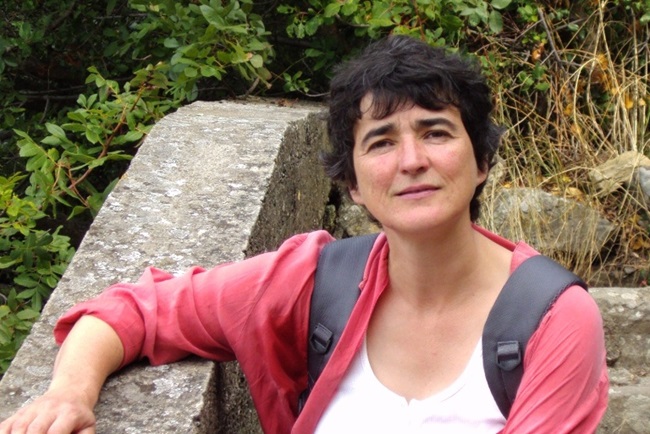Eileen Dillon has been an Oxfam supporter for thirteen years. The 48-year-old theatre director and National Trust learning officer has supported the charity’s campaigns and paid out regular direct debits since volunteering for a year at Oxfam’s global centre in Exeter. Now she has the chance to see at first hand what Oxfam does to combat poverty – not in the far-flung reaches of Asia or Africa, but just 100 miles from her Exeter home.
She is to spend a fortnight volunteering in two of Oxfam’s UK Poverty Programme projects in South Wales – one in Cardiff, the other in the village of Banwen in the Dulais Valley north of Neath.
Why does Oxfam work with people in poverty in the UK when even the poorest here are well off by some developing world standards? The fact is that poverty can be every bit as real for the 13 million people in the UK on low incomes and benefits. It can mean your children going to school hungry, being permanently cold because you can’t afford to heat your home or living in fear of any small emergency like a broken kettle or fridge because you can’t afford to replace it.
Wales is a case in point. Out of a population of 3 million, almost 400,000 working-age adults, 200,000 children and 100,000 pensioners are in poverty as measured by low income after housing costs have been deducted. One-third of these adults are either disabled themselves or have a disabled partner. A quarter of the children live with at least one disabled adult.
Eileen is spending her first week volunteering at the Dove Workshops in Banwen, near Neath, host of Oxfam’s project working to help people in long term unemployment take control of their own lives and achieve positive change. The village lies in the upper Dulais valley where 35% of all adults are economically inactive and almost three times the national average of people have a long term limiting medical condition.
Ranking far below those on fixed incomes and low wages, the poorest people in Wales are the 10,000 people who have fled their own countries and sought asylum or refuge in the four ‘dispersal areas’ of Cardiff, Newport, Swansea and Wrexham. Such people can neither work or claim benefits and often wait years for decisions to be made on their right to remain by the Border Agency.
The following week Eileen will volunteer in Oxfam’s Sanctuary in Wales project in Roath, Cardiff housed in the city’s Oasis centre. She will be helping project worker Helen Gubb who provides intensive and tailored support to women refugees and asylum seekers in order to build their confidence, to be active within their local communities, and to be ready and able to gain employment.
“I am looking forward to my volunteering visits to Wales. It is a great opportunity to see the work of Oxfam in action in the UK,” said Eileen, who has promised to write a blog about her experiences.
The projects Eileen is visiting are supported by the Big Lottery Fund in Wales.
